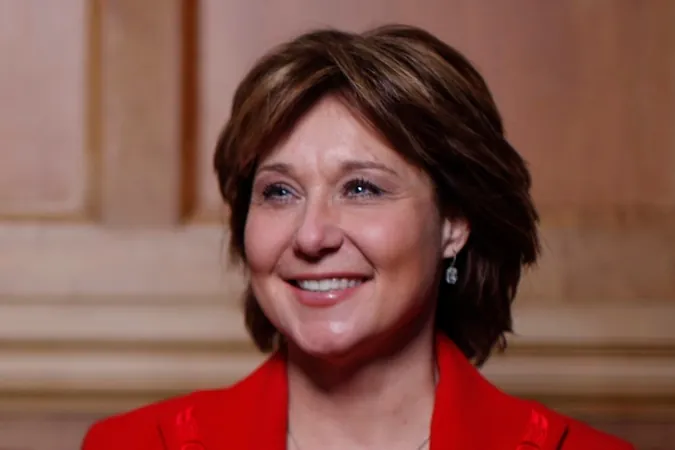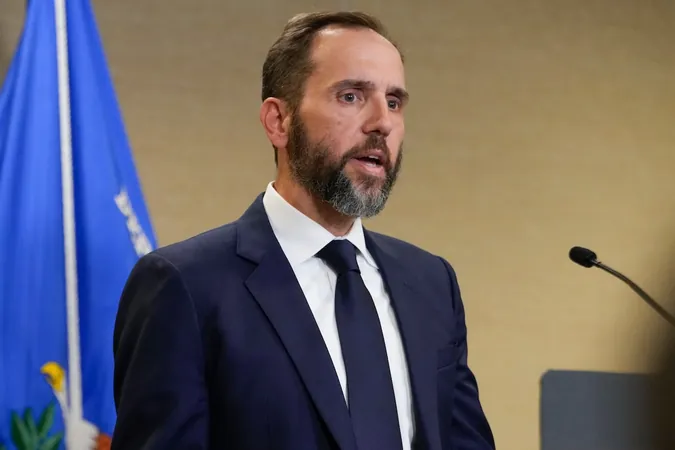
Major Changes Ahead: Family Open Work Permits Face New Restrictions in Canada Starting January 2025!
2025-01-14
Author: Benjamin
Who Will Be Affected?
Under the new regulations, only the spouses or common-law partners of students enrolled in specific educational programs will qualify for family OWPs. This includes: - Master's programs lasting 16 months or longer - Doctoral programs - Select professional programs, which will be detailed in a list released by Immigration, Refugees and Citizenship Canada (IRCC) on the implementation date.
Changes for Foreign Workers
Similarly, the family OWPs for foreign workers will now be restricted to spouses or common-law partners of individuals employed in designated categories, specifically: - TEER 0 occupations (senior management) - TEER 1 occupations (professional roles requiring a degree) - Certain TEER 2 or TEER 3 occupations in fields such as: - Natural and applied sciences - Construction - Healthcare - Natural resources - Education - Sports - Military services To qualify, foreign workers must have at least 16 months of validity left on their work permit when their spouse applies for a family OWP.
Who’s No Longer Eligible?
Dependent children of foreign workers will no longer be able to apply for family OWPs, marking a significant policy shift that could impact many families' plans for living and working in Canada.
Continuity for Existing Permits
Those who have already received family OWPs under the previous eligibility criteria will see their permits remain valid until expiration. Importantly, if spouses of foreign workers possess work permits that are shorter than their partner's, they may still apply for a renewal matching the duration of the sponsor's existing permit.
Remaining Avenues for Eligibility
The new regulations do provide pathways for some educational programs outside the traditional master's and doctoral degrees. The following programs will allow students to obtain a family OWP for their partner: - Doctor of Dental Surgery (DDS DMD) - Bachelor of Law (LLB, JD) - Doctor of Medicine (MD) - Doctor of Optometry (OD) - Pharmacy (including PharmD) - Doctor of Veterinary Medicine (DVM) - Various Bachelor degrees in Nursing and Engineering - Bachelor of Education (BEd)
Exemptions from the New Rules
Interestingly, partners of workers covered by free trade agreements, as well as those who are sponsored for permanent residence by their Canadian loved ones, are not impacted by these new changes. They will still be able to apply for Spousal Open Work Permits if they have legal temporary status in Canada.
The Bigger Picture
These changes to family OWPs are part of broader reforms by IRCC aimed at addressing housing supply and affordability issues in Canada by reducing the inflow of temporary residents. Minister of Immigration Marc Miller anticipates that these adjustments could lead to a significant decrease of between 50,000 to 100,000 permits being issued over the next three years.
Why OWPs Matter
Open Work Permits are highly coveted due to their flexibility, allowing holders to work for virtually any employer across Canada without ties to a specific job. This standalone feature differentiates them from employer-specific permits and is likely to continue making them an attractive option for newcomers.
As Canada embarks on these reforms, many families are left to navigate the complexities of the immigration landscape—an adventure that will undoubtedly continue to spark discussion and debate across the nation. Stay tuned for more updates as this situation unfolds!









 Brasil (PT)
Brasil (PT)
 Canada (EN)
Canada (EN)
 Chile (ES)
Chile (ES)
 Česko (CS)
Česko (CS)
 대한민국 (KO)
대한민국 (KO)
 España (ES)
España (ES)
 France (FR)
France (FR)
 Hong Kong (EN)
Hong Kong (EN)
 Italia (IT)
Italia (IT)
 日本 (JA)
日本 (JA)
 Magyarország (HU)
Magyarország (HU)
 Norge (NO)
Norge (NO)
 Polska (PL)
Polska (PL)
 Schweiz (DE)
Schweiz (DE)
 Singapore (EN)
Singapore (EN)
 Sverige (SV)
Sverige (SV)
 Suomi (FI)
Suomi (FI)
 Türkiye (TR)
Türkiye (TR)